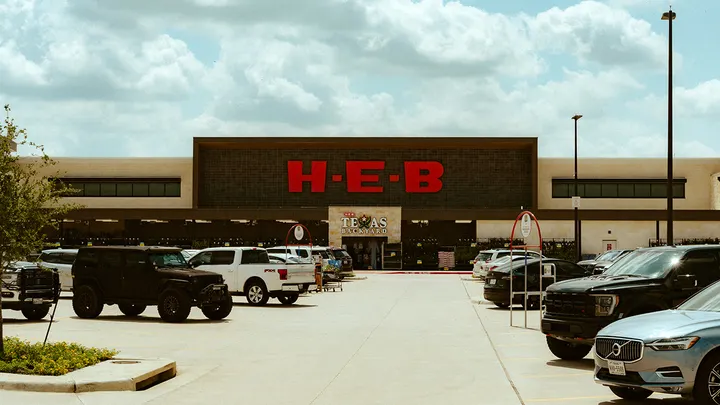On Wednesday evening, 638 bus drivers, mechanics, utility and facility workers and clerks began a walkout at the Fairfax Connector transit system in Northern Virginia. The workers are members of Amalgamated Transit Union Local 689.
A press release issued by Local 689 declared a “vast divide between the Union and the company” as of the last meeting between the two parties. The ATU reports that while the company’s last stated offer “included what appeared to be competitive wage increases for bus operators,” it “deliberately failed to acknowledge” the area’s high cost of living and excluded other benefits.
The workers have been without a new contract since late November. Workers are demanding improved pay as well as retirement benefits. According to one driver, “we have people that work for 25-30 years who have retired and don’t have any income… apart from social security” in Fairfax County, one of the most expensive places to live in the United States.
“Transdev is not doing anything [to meet our demands] for the economy, gas prices and food on the shelf,” said one worker, who explained that most workers were young and lived in the area.
In addition, Connector workers receive only seven paid sick days. ATU 689 has called for a marginal improvement of 12 days paid sick leave. “COVID hasn’t gone away,” a mechanic told the World Socialist Web Site, adding that he had caught it at least three times without receiving compensation. The virus sidelined him for an entire month without pay in 2020. The worker explained this was something he was able to survive mainly due to leniency from creditors in the first year of the pandemic.
The yearly income of a Fairfax Connector worker can vary from garage to garage. Workers in the western portion of Fairfax County are paid less than workers driving for the same company in the inner suburbs of Washington, D.C. A driver operating out of one garage makes up to $2.50 less than a driver elsewhere under the same job description.
“Buses are brought into the shop from other yards because the repairs cost less here,” a mechanic told the WSWS.
Regardless of location, all workers are underpaid at Fairfax Connector. According to the union, a new driver can expect to earn roughly $60,000 yearly in pay. This is less than half of the county’s median household income of $133,000 for 2021. A worker noted that transit workers in neighboring Prince William County make $6 more an hour. “My property taxes have risen by $4,000. I’m struggling to make my mortgage payment,” they said.
The walkout is the largest strike in the Washington, D.C. transit system since 2019, when the Fairfax Connector struck briefly over unfair labor practices (ULP). The Connector serves roughly 26,000 passengers everyday on over 93 different bus routes and is operated by the transit corporation Transdev.
According to Transdev’s website, the European-based multinational earned €7.07 billion in revenue in 2022. The Fairfax Connector service was leased to Transdev in 2019 for a payment of €400 million ($432.9 million) for a period of five years.
The 2019 Connector strike occurred at the same time as a walkout of over 120 Washington Metropolitan Area Transit Authority (WMATA) workers at the nearby Fairfax County garage on Cinder Bed Road.
The two struggles together represented the potential for a united struggle of transit workers throughout the region in defense of public transit and workers’ living standards. However, the ATU leadership refused to link these workers’ struggles even though both were against Transdev at the time and with members of the same union.
While WMATA’s contract with Transdev was terminated the following year, Cinder Bed Road workers had to pay for their pensions to follow them to their new employer, even while they remained within the same union local. Those unable to effectively pay twice for their retirement funds lost them.
The strike now underway occurs amid a deepening cost-cutting drive at WMATA. The public transit system, which serves the greater Washington, D.C. region and has a workforce of over 12,000, is currently facing a “doomsday scenario” in its funding. The metro system has incurred a $750 million budget deficit due to loss of ridership during the course of multiple safety failures, including chronic engineering failures, among its fleet of metro cars, as well as the impact of the COVID-19 pandemic.
In a plan floated earlier this month, WMATA leadership proposed a series of rate hikes for transit service, instead of previously-announced station closures and the wholesale elimination of bus routes. Under this alternative proposal, Metrorail and Metrobus services would see 12.5 percent increases in general fare rates. This would then jump to 25 percent increases in the evenings.
In addition, the transit authority would divert resources from its preventative maintenance fund into the main operating budget. Given WMATA’s recent series of safety breakdowns, this short-sighted proposal is problematic at best.
WMATA’s funding crisis would occur alongside the expiration of ATU 689’s 9,000 public sector transit workers’ contract. Rather than vowing to use all means at their disposal to fight the threat of catastrophic cuts to living standards dangling over the public sector workers’ heads, the ATU has turned to its preferred method of begging Democratic and Republican Party officials in Congress and locally to have mercy.
An ATU 689 press release in early February states, “The Union implores all parties to not allow these [cuts] to come to pass.”
The union has taken to making similar demands from local Fairfax County officials in the case of the Fairfax Connector. A memo published on February 1 absurdly demands that Democratic Fairfax County supervisor Jeff McKay “support workers during their contract talks.”
These pleas are meant to redirect transit workers’ struggles into dead-end appeals to the Democratic Party instead of towards a broader united struggle involving workers across the DC area. For his part, McKay has maintained a studious silence on the strike. The county supervisor had previously indicated that Fairfax County as a whole anticipates service cuts with a nearly $284 million budget shortfall, which his office blames on state-level underfunding. His office also proposed public/private “partnerships” as a means of solving WMATA’s crisis in a previous comment to Fairfax Now.
In calling an Unfair Labor Practice strike, the ATU reserves the ability to call off the workers’ job action at any moment on the vague claim that management has suddenly decided to “bargain in good faith.” This was done in the 2019 strike, despite the fact that the final offer that emerged from the “good faith” bargaining of Transdev and the ATU left the membership in the current terrible conditions they are now fighting against.
It is critical that transit workers at Fairfax Connector take the necessary steps to form independent worker-based rank-and-file organizations to link their struggles with workers in similar circumstances throughout the region. In this way they can prepare for an all out fight against the privatization of public services and a defense of living standards throughout the region. Workers are not responsible for the financial crisis created by the capitalist system’s refusal to address the COVID-19 pandemic and public safety in general.
In forming these rank-and-file committees, workers must refuse to subordinate their struggle to the bureaucratic ATU trade union, Teamsters and similar organizations, who have proven time and time again their willingness to sacrifice their members’ well-being in order to maintain their own privileges within the capitalist establishment.




